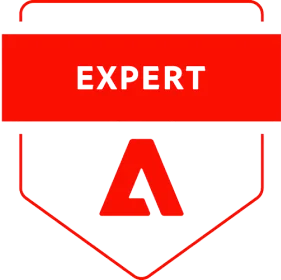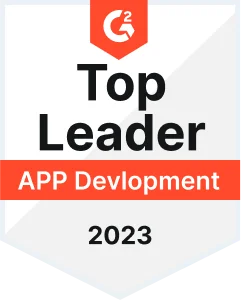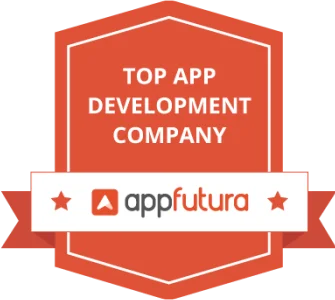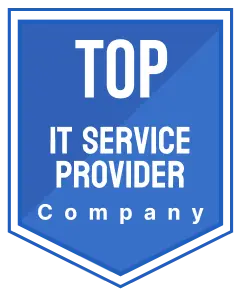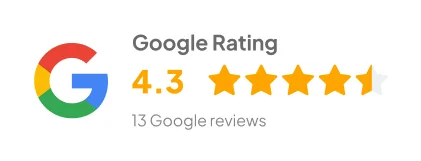Choosing the right technology stack is one of the biggest decisions one should make while developing an app. A mobile app technology stack encompasses front-end, and back-end frameworks, languages, and tools, as well as databases and cloud services. A selected stack determines the performance, scalability, and cost of an application, so it's really important to choose the best one to reach specific goals.
In this guide, you will find the magnitude of the main factors so that the overall development process will be smooth and you will make the right choice for App Stack Selection.
Would you like to start developing your next Mobile app? Below are our best app developers to design the perfect app to suit your specific requirements. Contact us now!
Elements of an app development technology stack
If you have an understanding of the basics of a Tech Stack for Mobile Apps, it will be easier for you to make decisions.
- Front End (Client Side) - The aspect of the application that the user utilizes, which is developed using markup and programming languages such as HTML, CSS, and Javascript. Some notable ones are React.js, Angular, and Vue.js.
- Server Side/ Back End- This also pertains to the running of the server and management of data which happens using such frameworks as Node.js, Django, and Spring.
- Database: It governs the data entry and retrieval methods with the help of systems such as MySQL, MongoDB, or PostgreSQL.
- DevOps & Cloud Infrastructure- This will also include Scalability and deployment such as through AWS, Google Cloud, and containerization tools like Docker.
The testimonies of experts as well as practitioners about the mentioned concepts assist one to further ascertaining the Suitable Technology Stack for Apps in order to achieve their purposes.
Define Project Requirements to Observe the Right Tech Stack for Apps
Knowing what your app specifically needs can help you pick the right tech stack for apps. And so, here are questions to ask:
- App Type: Is the app mobile, web, or cross-platform? Native iOS would be written in Swift while cross-platform in Kotlin for Android. In this category of scenarios, web apps are quite a good contender in either React or Angular.
- Features and Complexity: It must have real-time features, such as messaging and heavy data processing. Asynchronous frameworks such as Node.js are to be used here to enable real-time capabilities, while Python will be used if computation is data-rich.
- Scalability: Stacks like Java with Spring, Node.js, and databases of MongoDB are ideal for such high-growth applications.
- Budget and Timeline: For instance, open-source technologies may reduce costs. However, stacks with good communities can speed up development processes.
Clear project requirements streamline the App Stack Selection Guide and help you avoid unnecessary costs and time investments.
Choice of Front-End Technology
Among other things, the front end should involve speed and flexibility but most importantly simplicity to engage the user end.
- User experience (UX): React and Vue.js are excellent frameworks for making interactive and dynamic interfaces.
- Performance: Angular is good for cross-device applications if applications are complex in nature; otherwise, for lighter applications, Vue.js would be good.
- Community: Choose a framework with a strong community, such as React, that will provide access to resources, plugins, and a wider talent pool.
Choosing a front-end framework that suits your project's requirements will ensure a great user experience and increase user engagement.
Selecting the right Technology Stack for the Back-End
The back end is where all the figuring and structuring necessary to make a website and to operate a server are done. Well, consider the following:
- Project Requirements: Node.js is particularly suitable for use in real time, applications while Django (Python) employs the use of libraries for processing of data and web development.
- Scalability: If there is a lot of traffic expected then there are easy scalable structures like Spring or Node.js etc.
- Availability of talent: More popular back-end languages such as JavaScript and Python have a more extensive audience which would follow up on the schedule of your project.
A well-chosen back-end will ensure smooth operations, and high scalability, and support the requirements of the App Development Technology Stack.
Database Options for Better Performance
The database selection may determine data management, storage, and retrieval.
- Data Structure: For structured data, relational databases such as MySQL will work best; for unstructured data, NoSQL options like MongoDB will be flexible.
- Speed and Scalability: Use MongoDB for high data loads. For real-time applications, memory-resident databases like Redis are best.
- Consistency Requirements: Select a database that ensures a trade-off between data consistency, availability, and partition tolerance according to the applications.
Right DB Selection improves Data management as well as end-user interactions in terms of improvement towards Right Technology Stack.
Scalability: DevOps and Cloud Solutions
In effect, cloud solutions and DevOps help guarantee scalability, as well as efficiency in operations.
- Cloud Providers: AWS, Google Cloud, and Azure scale resources as demand increases.
- Containerization: Docker and Kubernetes make it easier to deploy, and microservices are scaled independently.
- Automation: CI/CD tools like Jenkins support seamless updates and improve stability and faster rollouts.
Scalability should be smooth to a reliable cloud solution, making an application development technology stack develop smoothly
See Also: Wonderful Tips to Design an Excellent Landing Page
Future-Proofing Your Stack
Technology evolves quickly, so make sure your chosen stack is flexible and future-proof:
- Trends and Compatibility: Use such technologies that emerge with trends in AI, IoT, or any other relevant field.
- Documentation: Use well-documented technology to reduce the complexities of maintenance.
- Upgrade options: update the stack with new upgrades and features.
A future-proof stack significantly reduces reengineering costs, thus allowing you to keep your applications current over time.
Want to Elevate your mobile app development? Our expert developers are here to develop the perfect app for your unique needs. Get started with us now!
Conclusion
A technology stack has a significant impact on the performance, scalability, and user experience of any product or application. One can select the most sustainable, flexible, and scalable mobile application development tech stack for their UI, Server, and Database Development.
Are you lost in trying to figure out which is the best tech stack for your project? Let’s discuss our WebOConnect team here and the topic of today: the most effective mix that will help you overcome the hurdles waiting for you!
FAQs:
Q1: Why is choosing the right technology stack important for app development?
A1: It impacts app performance, scalability, costs, and user experience, setting the foundation for future growth.
Q2: How do I decide between a native, web, or cross-platform tech stack for my app?
A2: Consider app type, audience, and budget—native for performance, cross-platform for cost-efficiency.
Q3: What factors should I consider for the back-end technology in my app?
A3: Focus on scalability, security, and complexity; choose frameworks suited to real-time or data-driven needs.
Q4: Which databases work best for app development?
A4: Relational databases for structured data; NoSQL for flexibility with unstructured, high-volume data.
Q5: How do I future-proof my app’s tech stack?
A5: Choose adaptable, well-documented technologies that keep up with industry trends like AI and IoT.

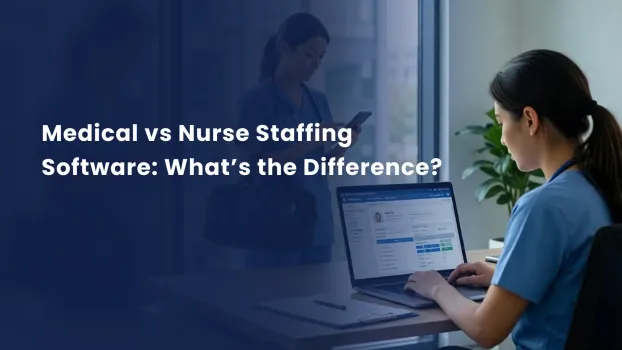
_thumb.webp)
_thumb.webp)



